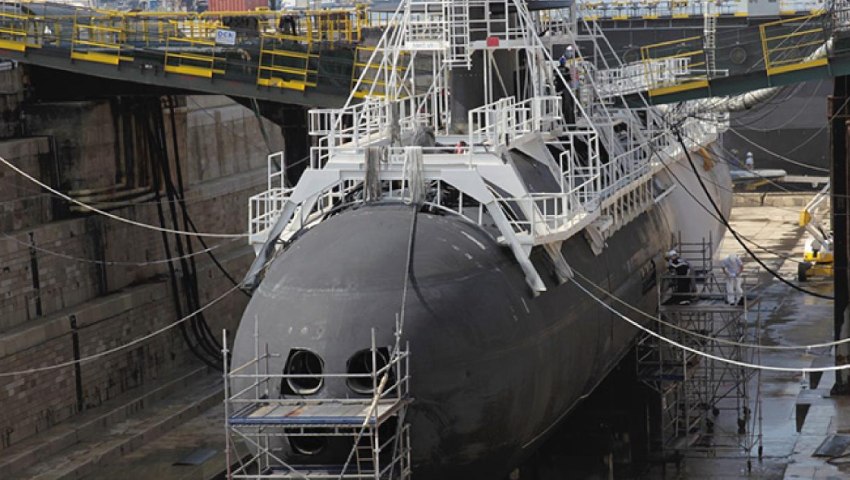The global shipbuilding contractor has been selected to provide maintenance support for the French Navy’s nuclear attack submarines.
Naval Group and the Fleet Support Service have signed a three-year, multimillion-dollar contract for the operational maintenance of the French Navy’s nuclear attack submarines (SSN).
The contract involves the delivery of maintenance operations for the fleet of Rubis Class and Suffren Class SSNs, along with engineering support, maintenance of tools and spares, management of the stock of spares, training services, and maintenance of nuclear installations.
Naval Group is expected to work with industry partners — including TechnicAtome, Thales and Safran — for the supply of strategic equipment and local industrial fabric, while also leveraging over 500 of its France-based employees.
The contract forms part of a transitional phase between the gradual withdrawal from active service of Rubis Class SSNs and the delivery of next-generation Suffren Class vessels.
France’s Toulon naval base is currently undergoing a modernisation to ensure it is equipped to support the generational submarine transition.
“I would like to thank the French Navy, which has once again placed its trust in us. Naval Group is committed to working alongside its customer on a daily basis and over the long term to ensure the best possible operational availability of its ships,” Vincent Martinot-Lagarde, executive vice-president, services, said.
“Service and technical performance are at the core of this contract. Naval Group guarantees to the French Navy a high level of safety and security as well as a strong technical support capacity.
“Through this contract, the group is also bound to ensure the availability of critical systems of the vessels. "
The Naval Group-built Suffren Class submarines (the Barracuda) are designed to provide versatility, mobility, endurance and speed across a range of mission-types, including support for deterrence, deep strikes, extended area surveillance, deployment with a naval aircraft force, co-operation within coalitions, and special forces.
A diesel-electric variant of the nuclear-powered Barracuda, the Shortfin Barracuda, was selected by the Commonwealth government in 2016 to replace the Royal Australian Navy’s Collins Class fleet under the SEA 1000 program.
Naval Group has been tasked with delivering 12 of the RAN’s next-generation Attack Class vessels for approximately $80 billion, with final operating capability (FOC) expected in 2054.
[Related: Naval Group Australia appoints new board directors to support the Future Submarine Program]


